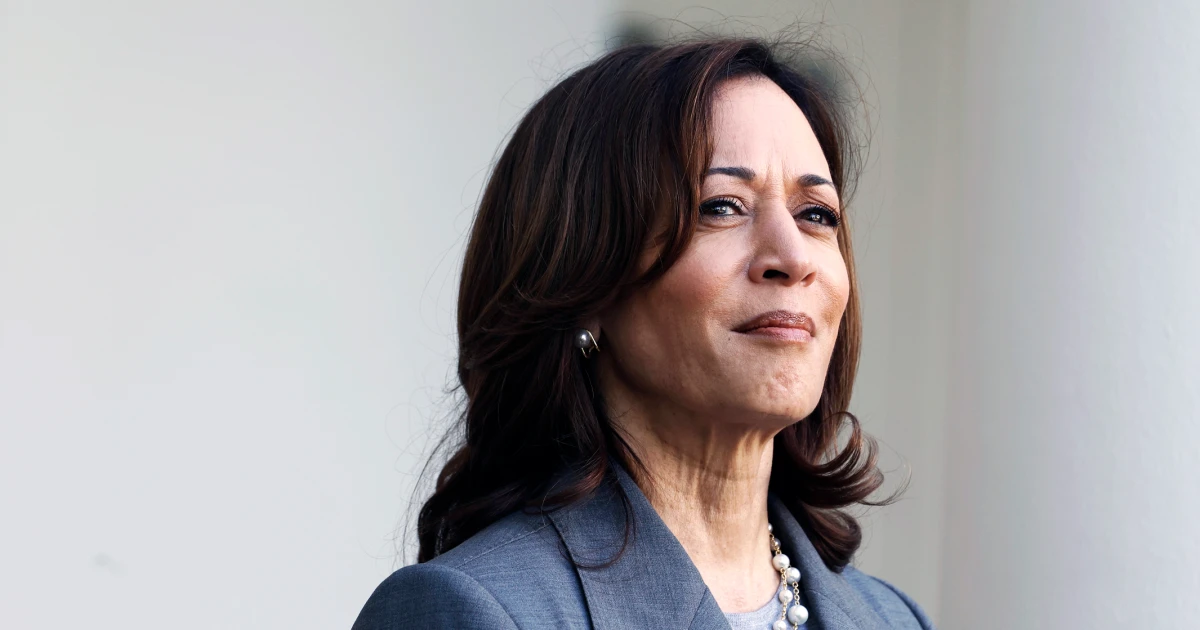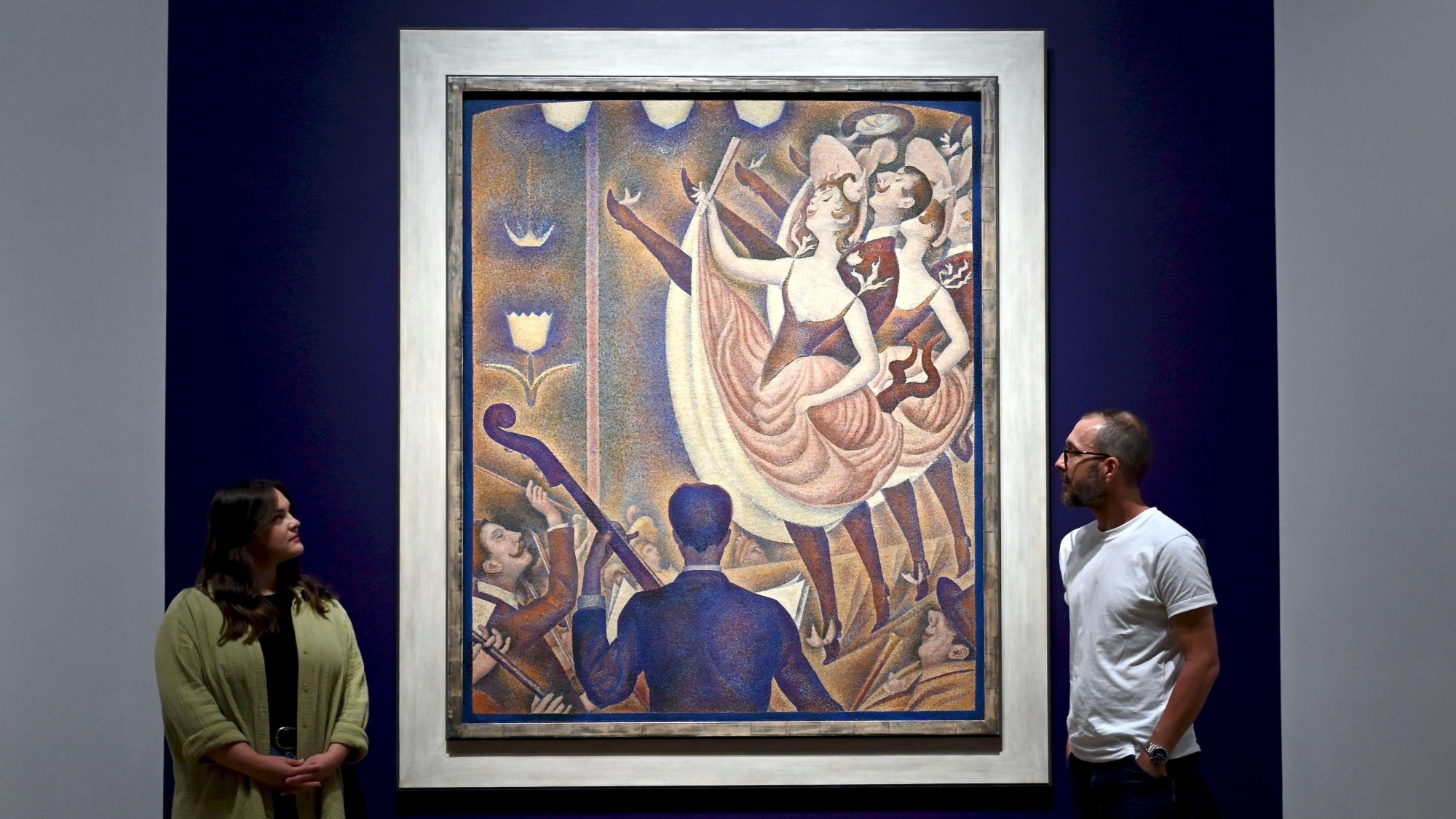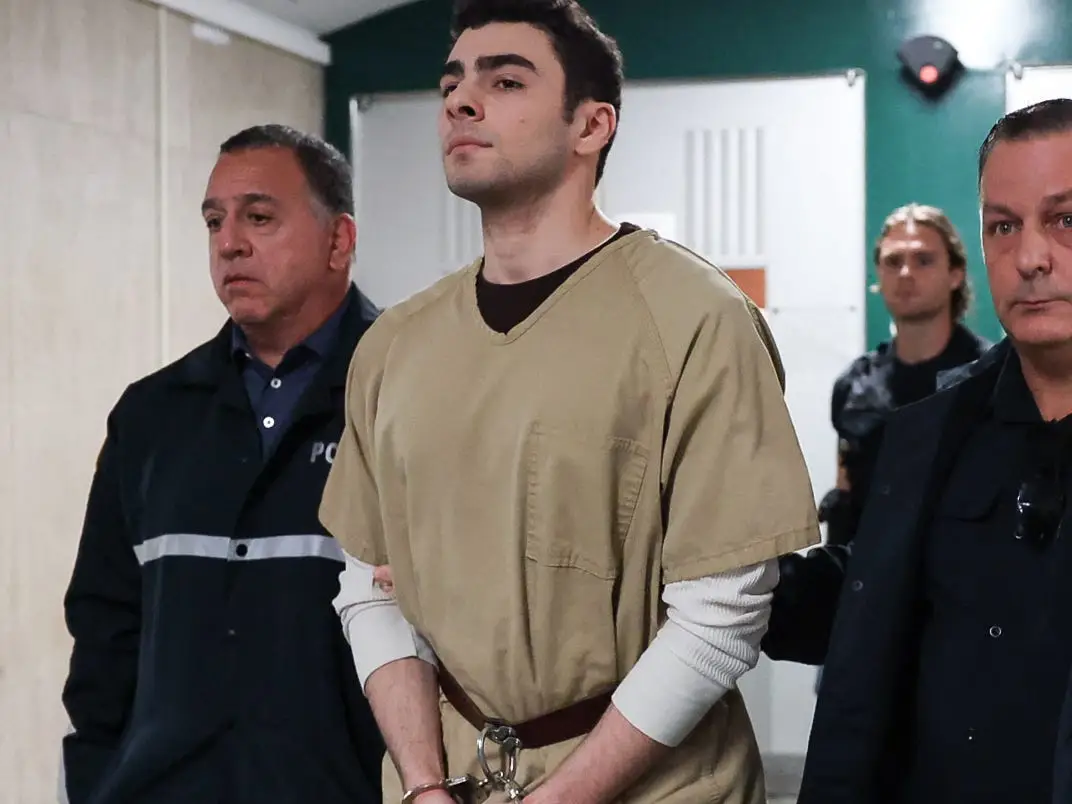
Welcome to the online version of From the Politics Desk, a newsletter that brings you the NBC News Politics team’s latest reporting and analysis from the White House, Capitol Hill and the campaign trail.
In today’s edition, Ben Kamisar explores how Kamala Harris’ memoir has kick-started a new phase of the next presidential campaign. Plus, Steve Kornacki dives into the data to compare how the public views Jimmy Kimmel to late-night TV hosts three decades ago.
Sign up to receive this newsletter in your inbox every weekday here.
— Adam Wollner
Kamala Harris’ book opens up a new front in the nascent 2028 race
By Ben Kamisar
Former Vice President Kamala Harris’ return to the public eye has opened up the first big moment of confrontation between potential rivals for the 2028 Democratic presidential nomination.
In her new memoir out today, titled “107 Days,” Harris outlined her thinking — and a few mea culpas — around key decisions and developments from the 2024 campaign. She expressed regret that she didn’t question Joe Biden’s decision to run again. And she offered some blunt thoughts about other prominent Democrats, including former Transportation Secretary Pete Buttigieg and Pennsylvania Gov. Josh Shapiro, both of whom she considered to be her running mate and could, like her, be White House contenders in 2028.
“She’s going to have to answer to how she was in the room and yet never said anything publicly,” Shapiro said last week on a SiriusXM podcast hosted by sports commentator Stephen A. Smith about Biden’s decision to seek another term.
Appearing on “Meet the Press” earlier this month, Buttigieg said Biden “should not have run, and if he had made that decision sooner, we might have been better off.” He went on to stress it was Biden’s decision and that he “was not included in the process.”
As for her vice presidential selection process, Harris wrote that, while she “admired [Shapiro’s] work” and thought he was “great on the stump, a wonderful campaigner, very compelling and very bright,” she worried that Shapiro would be “unable to settle for a role as No. 2 and that it would wear on our partnership.”
During an interview that aired Sunday “Meet the Press,” Shapiro brushed the book aside, arguing that he spent last election year “focused on working my tail off to deny Donald Trump a second term.”
Harris also wrote that Buttigieg was her “first choice” to join her on the ticket as someone “well qualified in so many respects,” and that “he would have been an ideal partner — if I were a straight white man.”
Buttigieg told Politico last week he was “surprised” by those comments.
“My experience in politics has been that the way that you earn trust with voters is based mostly on what they think you’re going to do for their lives, not on categories,” he said.
Harris elaborated in an interview last night on MSNBC’s “The Rachel Maddow Show” that while she potentially “was being too cautious,” she worried adding Buttigieg to the ticket would be too risky.
“In one of the most hotly contested elections for president of the United States — against someone like Donald Trump, who knows no floor — to be a Black woman running for president of the United States and as a vice presidential running mate a gay man, with the stakes being so high, it made me very sad, but I also realized it would be a real risk,” she said.
Read more from Ben →
More on Harris:
Natasha Korecki and Jonathan Allen have 9 key takeaways from Harris’ new book.
In her interview with Maddow, Harris offered a tepid endorsement of New York City mayoral candidate Zohran Mamdani, Megan Lebowitz reports. “I support the Democrat in the race, sure,” Harris said.
Americans are split on Jimmy Kimmel, marking a shift from a past era of late-night TV
Analysis by Steve Kornacki
As Jimmy Kimmel returns to the airwaves tonight, a new poll shows that Americans’ views of him are highly polarized.
According to an Economist/YouGov survey conducted Sept. 19-22, 43% of adults said they have a favorable perception of the ABC late-night host, while 37% have an unfavorable one. The partisan split is enormous: Kimmel is seen favorably by 76% of Democrats and unfavorably by 73% of Republicans. And it extends to the network’s initial decision last week to suspend him: 83% of Democrats disapprove of that move while 73% of Republicans support it.
The partisan fault lines are hardly surprising, and likely go back much further than the current drama. Beyond his frequent jabs at President Donald Trump, Kimmel has sided with Democrats on air in policy fights, relied heavily on Democrats when booking political guests, and raised money for Joe Biden’s campaign last year. That the two sides of the political divide would see him so differently only seems logical.
In a previous era, when network television commanded massive built-in audiences, late-night hosts tended to lampoon both parties equally and refrain from sharing their own views. To come down on one side would be to needlessly alienate the other, the thinking went.
Johnny Carson, whose “Tonight Show” on NBC reigned supreme for three decades, could draw well over 10 million viewers a night with such an approach. As Carson prepared to retire in 1992, Gallup measured the popularity of Carson and his fellow late-night hosts — all had favorable ratings at least double their unfavorable scores.
At the time of that poll, Leno was preparing to take over Carson’s NBC show after several years as his backup. Letterman was still hosting “Late Night” on NBC in the slot after Carson’s show. And Hall’s and Miller’s shows aired through syndication.
Kimmel, by contrast, has been averaging under 2 million viewers per night this year. The proliferation of new platforms and voices has drained traditional network television audiences. The ratings that Carson posted would be unimaginable for a host today. Which means that most of the people who have an opinion of Kimmel likely formed it through consuming content like video clips or media coverage rather than watching his show as it airs.
That’s all From the Politics Desk for now. Today’s newsletter was compiled by Adam Wollner and Bridget Bowman.
If you have feedback — likes or dislikes — email us at politicsnewsletter@nbcuni.com



